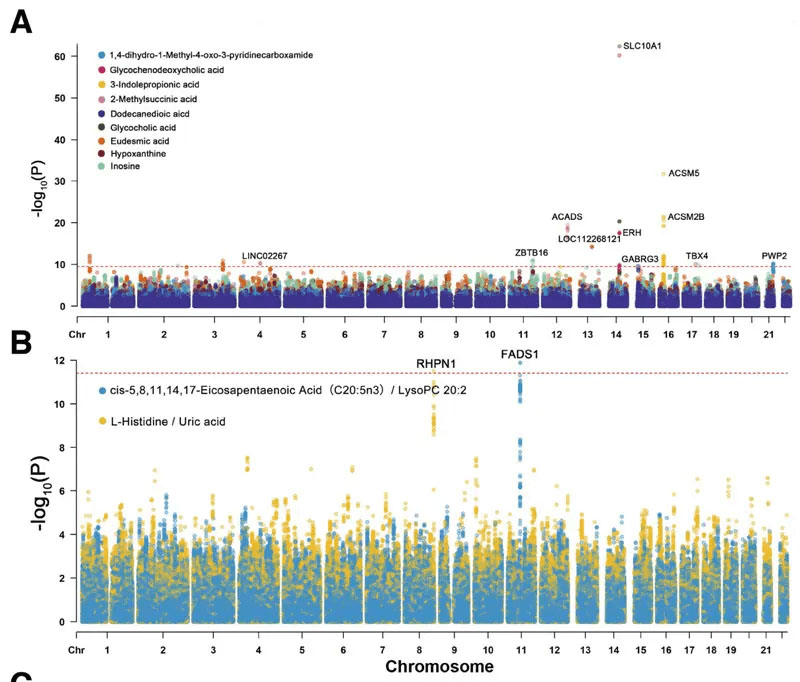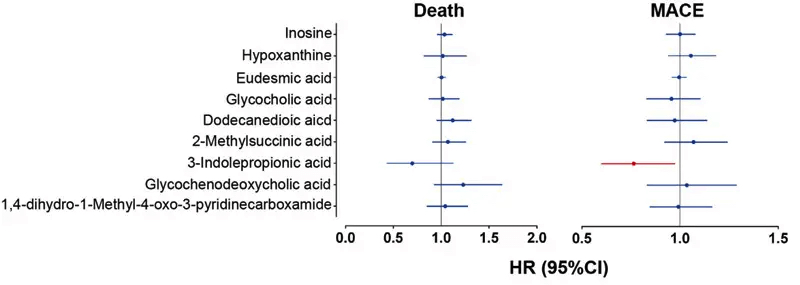Metabolomics Service for Metabolic Disorders
Metabolic disorders are a group of conditions that increases the risks to stroke, heart disease, and diabetes. With high pressures of work, career development, and unbalanced diet and sleeregimens, metabolic disorders are increasingly common. Active research uses metabolomics to identify key metabolite features that would provide early indication or identify high-risk population groups.
Case Study: Genome-wide Association Study Of Metabolites In Patients With Coronary Artery Disease Identified Novel Metabolite Quantitative Trait Loci (Wang et al., Clinical and Translational Medicine 2021)
Coronary artery disease is a common type of cardiovascular disease with high mortality rate. Genetic variants could explain approximately 10.6% of the cases. To better understanding the genetic regulation of blood metabolite levels can help identify additional mQTLs. Blood samples from a cohort of 1551 coronary artery disease patients were collected for this mGWAS study. The plasma portion was used for metabolomics and the haemocytes were used for SNP genotyping.
Result Of Metabolomics For Metabolic Disorders
The results showed a strong association between 9 metabolites and 13 SNPs, of which 7 were novel loci. Further analysis identified 3-indolepropionic acid was related to the risk of major adverse cardiovascular events (MACE).




